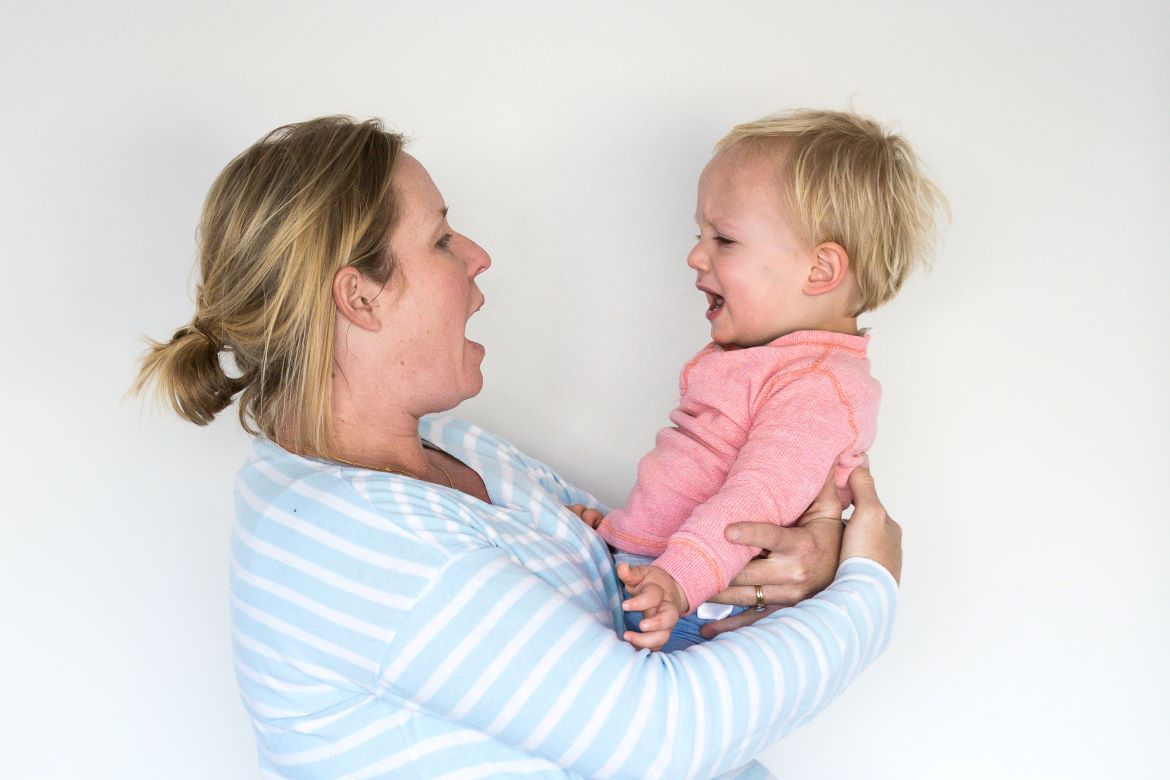By Tracy Cassels
You want to be respectful.
You want your child to know that they are heard.
So you ask them to do things. Like get dressed, clean up the toys, take their plate in, and so on. Because it doesn’t sound right to simply command them.
But what if they say “no”?
This is the dilemma that many parents face, starting when their kids are young. I have spoken with many families who struggle because they will, for example, ask their child to come change the diaper and the child says no. Because it needs changing or risk something like diaper rash, they then move in and change it anyway, typically to a thrashing toddler/older baby who is upset by the whole ordeal. As kids get older, you see the same thing with toys. Parents will ask a child to clean up and the child simply doesn’t want to. Parents often resort to either extreme negotiations or extreme measures of threatening to remove toys.
The problem is that the request was never respectful to begin with.
I know, how can a request not be respectful? Isn’t that at the heart of respect?
It is, but only if you actually mean the other individual to have a full say in the matter. If you don’t, then you’re giving them a false sense of agency and then taking that away. It tells the child that you really don’t respect their opinion unless it conforms to what you want.
Let’s unpack this a bit to make sure I’m being clear…
Take the child who doesn’t want a diaper change. If we think about this scenario from their perspective, they have been asked to come for a diaper change. The asking implies there’s an opportunity to say ‘yes’ or ‘no’. So the child opts for ‘no’ because (a) diaper changes may not be fun, and (b) the child is otherwise engaged. The child also doesn’t understand the consequences of not having the diaper changed quickly, even though it’s the child who will suffer the consequences later. Once the child says no, the parent then says, “Well, it has to happen anyway” and takes the child over to do it.
Clearly the child is upset, not only with the diaper change (which may be an issue as is), but also with the fact that his or her opinion was just completely disregarded.
What are the effects of this? Well, it makes the situation at the moment rather disappointing, but if it happens enough, it sets the stage for a child to feel unheard. The child’s voice doesn’t matter and he or she knows it. This is even more prominent for older kids when facing the issue of cleaning up or getting dressed or anything else because they are acutely aware that you just completely disregarded them.
Sadly, I hear all-too-often the recommendation to always start with a request then move to a command if the child doesn’t listen. I disagree entirely.
Respect is about making sure you value the other person’s input. And like all things in life, sometimes we don’t get a real say, or rather the consequences are clear enough that it’s not a real choice. I have to pay my taxes, regardless of my thoughts on the matter. I have to go grocery shopping when we’re out of food, even if I don’t feel like it.
It’s not disrespectful to make this clear to children.
It’s about balance.
This means that you have to be very careful about when you use commands, how you use them, how you react if you mistakenly make a request when you didn’t mean to, and how to respond to refusal.
When do you use commands?
I am a firm believer that there are only very few cases where you truly issue commands. The first area is when it involves safety or wellbeing. For example, my son can get very bad diaper rash if his diaper isn’t changed quickly (likely a result that goes with his yet-to-be-diagnosed intolerance that we’re working on), so I simply can’t leave him or else he will go through a day or two of extreme pain with each diaper change. This means that the change is a non-negotiable for us. Running towards the road will also issue a command.
One caveat to this is when it has to do with biological functions, even though many people view them as essential to wellbeing. You cannot force a child to eat or sleep or toilet in a particular manner.
You can offer up healthy food options, but forcing a child to eat will increase the risk of later control issues around food.
You can offer up an environment conducive to sleep, but if a child isn’t tired, they aren’t sleeping. And you can offer up a toilet to sit on, but you can’t have a child go if they aren’t ready and sitting on the toilet – till they do is counterproductive as they end up resenting the entire experience and you end up with a much larger battle on your hands. So don’t make fights out of biological functions.
Another area that they can be used is when it comes to respect for the entire family. This is more about something like cleaning up after yourself, especially in public areas in the house. If you don’t want the mess around, then you have to be clear it’s not an option to leave it there. And as I’ll get to in the “how” section, you don’t issue threats either because that immediately takes the respect out of the equation. This respect extends to rules in other families as well and so if you are visiting someone, you want to make clear to your child that some rules will be different for the duration of the visit.
Finally, there may be socially-expected commands, like “you need to go to school” or “you can’t climb the table in the restaurant”. These can be trickier though because you really have to examine what is happening when a child refuses, as there is likely something going on that needs to be explored. Again, I will get to this more in the “when a child refuses” subsection.











